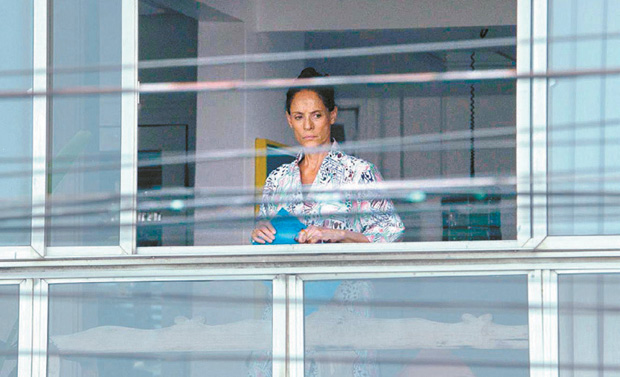Kleber Mendonca Filho's Aquarius
I know nothing of Filho's work, not even if the filmmaker is male or female (although the unusually sensitive treatment of the central female character leads me to think it is the latter). Filho is a graceful filmmaker, reminding me of Moretti in the artful, light way he glides through scenes. Most remarkable aside from the fully felt Clara is the way the filmmaker so effortlessly moves through time and the way quick cuts are used to show sexual actions and waves of Clara's thoughts and memories.
Ivan Passer's Cutter's Way
It's been 20 or so years since I first saw this in a bad print at the New Beverly. It's much stronger than I remember, Bridges and Heard quite impressive and the whole thing in much the same vein as Night Moves. It is one of the more important final bookends to the American New Wave, artistic with an A list crew and disheartened that the utopic future for America envisioned by the youth at the time had clearly failed.
Mikio Naruse's Floating Clouds
John Ford's The Lost Patrol
What I was most struck by, aside from Ford's signature ability to bring out the haunting poetry in natural landscapes, is a certain modern quality to the work. McLaglen's physicality towards the end does not feel too much different than Pacino in the latter stages of Scarface and the fact that Ford almost never cuts to the opposition gives the film artful restraint that really helps create the effective, ominous atmosphere he sustains throughout.





